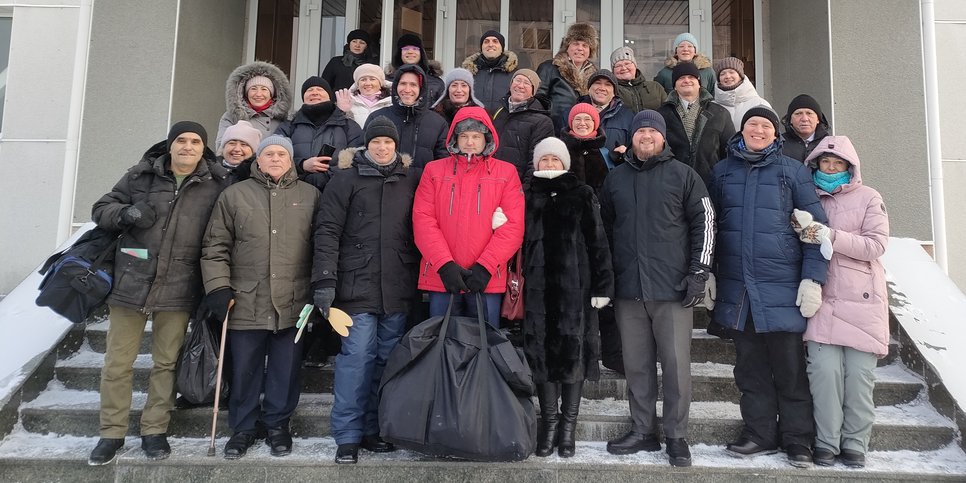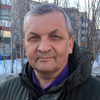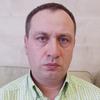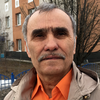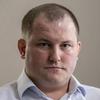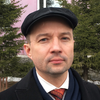Defendants in a high-profile case in Surgut. December 2023
Defendants in a high-profile case in Surgut. December 2023
Court in Surgut Ruled in a High-Profile Case of 18 Jehovah's Witnesses, Some of Whom Had Been Tortured Earlier
Khanty-Mansi Autonomous AreaOn December 5, 2023, the high-profile trial against Jehovah's Witnesses from Surgut concluded. Dmitriy Lupin, a judge of the Surgut City Court, found 18 believers guilty of extremism and gave all suspended sentences ranging from 4 to 7 years.
Sergey Loginov and Timofey Zhukov received the longest suspended sentence — 7 years. Yevgeniy Kayryak received 6 years and 10 months; Leonid Rysikov — 6 years and 9 months; Pavel Romashov — 6 years and 7 months; Vyacheslav Boronos, Saveliy Gargalyk, Artem Kim, Igor Trifonov, Yevgeniy Fedin — 6 years and 6 months; Igor Petrov — 6 years and 5 months; Vasiliy Burenesku, Sergey Volosnikov, Igor Kobotov and Viktor Fefilov — 6 years and 4 months; Aleksey Plekhov and Artur Severinchik — 6 years and 3 months.
The only woman in the case, Viola Shepel, received a 3-year and 3-month suspended sentence.
All defendants were given probation periods from 2 to 4 years.
The Surgut trial became one of the most widely discussed after the decision of the Supreme Court to liquidate the legal entities of Jehovah's Witnesses: the believers faced unprecedented cruel treatment by the security forces. A criminal case against 17 men and 1 woman between 31 and 71 years was initiated by the Investigative Department for the city of Surgut of the Investigative Directorate of the Investigative Committee of the Russian Federation for the Khanty-Mansi Autonomous Area. In February 2019, after a series of searches in the homes of believers, at least 40 people were detained for interrogation, 7 of them were tortured. The security officials applied beatings, electric shocks and suffocation until they lost consciousness.
The victims appealed to the Investigative Committee of Russia, the Prosecutor General's Office of the Russian Federation and the ECHR with calls to bring law enforcement officers to justice for criminal actions. Human rights defenderd actively spoke out. Despite this, no criminal case for torture was ever initiated, and two months after the incident, Vladimir Yermolayev, head of the Investigative Department of the Investigative Committee, where Jehovah's Witnesses were tortured, and his subordinate Sergey Bogoderov received awards, and the soldiers of the National Guard of Russia who participated in the operation received commendation.
Believers from Surgut who peacefully practiced their religion were accused of organizing, participating in and financing the activity of an extremist organization. A man mistaken for one of Jehovah's Witnesses was also prosecuted. During the investigation, the homes of several defendants were searched again; three men spent from 1 to 2 months in a pretrial detention center, and Timofey Zhukov underwent a compulsory psychiatric examination, which the court later declared illegal.
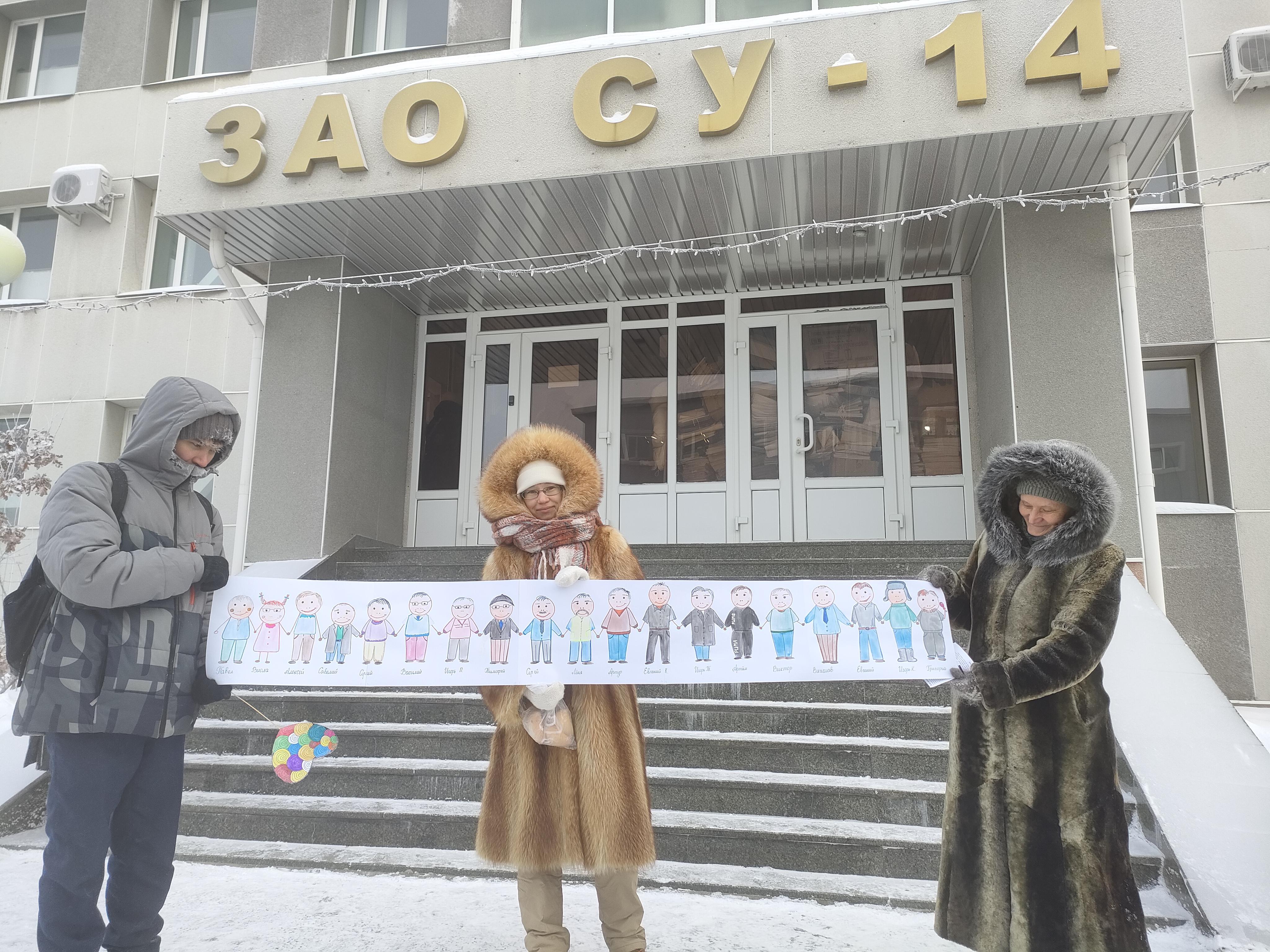
The case materials received by the court amounted to 222 volumes. However, as the defense emphasized, they do not list specific unlawful actions, and the gathered evidence only shows that the defendants continued to practice the religion of Jehovah's Witnesses after the liquidation of legal entities, which is not against the law. The court considered the believers' case for 2 years. For the last months, meetings were held behind closed doors every working day. It is known that one of the witnesses for the prosecution was an undercover agent for the special forces, who feigned interest in the Bible and secretly recorded conversations with the believers.
One of the convicted persons, Timofey Zhukov, a lawyer with many years of experience, called what was happening "legal absurdity and physical lawlessness." He added: "At first, to be honest, I didn't believe that in a secular state governed by the rule of law, in which the constitution guarantees freedom of religion, there could be repression for faith, and moreover, that believers would actually be imprisoned... From a legal point of view, the ban on legal entities should in no way affect regular believers."
Most believers faced financial difficulties due to criminal prosecution – many lost their jobs and some had their accounts blocked; despite seven of the convicted persons having minor children. Aleksey Plekhov, who was unemployed for about a year, recalls: "The judge scheduled court hearings 2-3 times a week. For many of us, such a schedule meant possibly losing our job." Leonid Rysikov, a 73-year-old pensioner who ended up on the Rosfinmonitoring list, said: "Every month I had to apply and wait for how much funds they would allow me to withdraw. Usually, it's 10 000, but once they allowed me to withdraw only 670 rubles."
Yevgeniy Fedin, who spent almost 2 months in a pretrial detention center, faced another difficulty: "When the investigation was going on, my father was very ill and I needed to be near him. I wrote a motion detailing the reason for the trip, but the investigator did not allow me go. A few days later, my father died. About six months later, my sister died, and the investigator again did not let me go to her funeral. My mom had to bury her daughter alone. For her it was the greatest stress."
All the while, the Surgutians felt the support of their fellow believers from different cities and countries. Igor Kobotov said: "After suffering stress [due to the raid], my wife did not want to return home and we stayed overnight with friends. Literally the next day, brothers and sisters started coming to us, to support and strengthen us. They brought money and food, assured us of their love and support." Yevgeniy Fedin related: "In the pretrial detention center, I received about 800 letters in 2 months. It was a great encouragement and support."
Shortly before Judge Lupin began his consideration of the case of Jehovah's Witnesses from Surgut, the association of former prisoners of the Dachau concentration camp (Lagergemeinschaft Dachau) sent an open letter to Russian President Vladimir Putin. "Not a day passes on which there is no report of state repression against Jehovah’s Witnesses," the letter says. "The homes of members of the religious denomination are searched and ravaged by the Russian secret service, FSB, and the police. Violent assaults and mistreatment occur. Women and men are condemned to long-term prison sentences. Requests to ease detention conditions or for parole are regularly refused." The letter concludes: “We urge you to grant every resident of the Russian Federation the constitutional right to free exercise of religion. Please end this injustice!”
